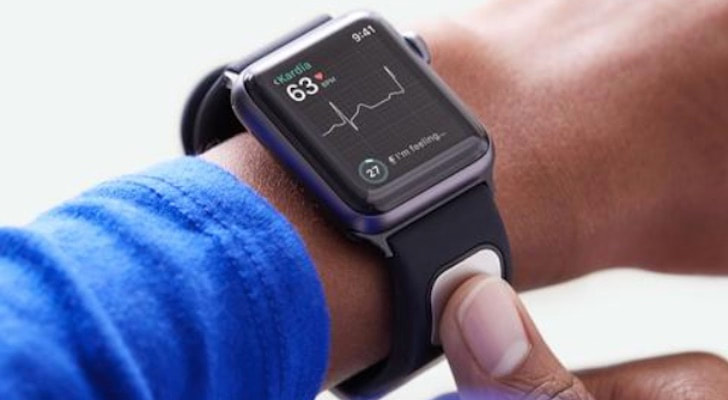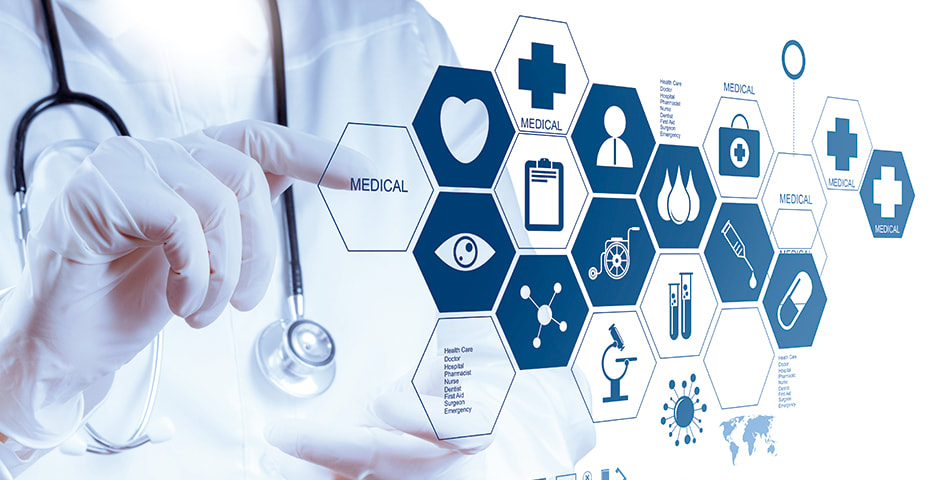|
One fine day you sit down to browse and surprisingly all the ads that pop up interest you-the all-new handbag collection, latest range of athleisure stuffs or interesting travel options. You are both surprised and happy, but there is a lingering doubt back of your mind-does the computer spy on me? Definitely no, but the marketing people are indeed spying on you by using big data to personalize ads that users view online.
Life sciences are not the first stream to utilize big data and most of us are aware of the information giants such as Google, Amazon and Facebook that play a full-time role in applying algorithms and coming up with the movies you like to watch or the food you love to eat. Now, the combination of science and technology empowers researchers to analyze big data to save lives in the medical field as well. Reputed organizations are trying to gain access and pledge ownership to huge treasures of medical data to come up with innovative ways to reduce a person’s risk of developing or dying from stroke or heart disease. A Bigger Picture on Big Data True to its name, big data is larger, complex data sets that are extremely voluminous that no traditional data processing software can manage them. Scientists, businessmen, medical practitioners, advertisers and governments are few sects of people whose lives spin around big data. Big Data & the Healthcare Industry Already a successful venture in other industries, using big data in the healthcare sector started a little later which seems odd keeping in mind the earlier predictions that the medical industry would be one of the most-benefited sectors from big data technology. The role of big data in medicine helps to build better health profiles to diagnose and treat patients in a better way. Healthcare industry is said to be complex due to the diversity of health-related ailments and their effects, the various treatment options available and their effects and due to the innumerable methods and approaches available for interpreting healthcare data. Despite its advantage and positive effect on the general public, there are certain criteria that make medical big data a complex one to practice:
Is There a Need for Big Data in Medicine? Healthcare is a major money-generating industry apart from being the lifeguard for people affected by various illnesses. Despite its criticality, most countries look forward to improving their healthcare quality, patient outcomes, increased data availability and increased analytical capabilities. Big data use is already visible in the delivery of personalized medicines, deciding treatment and diagnosis options using educational messages via mobile devices to bring about desired patient behavior, fraud detection and prevention. Some important areas that need big data analytics to improve healthcare include:
Big data plays a key role in healthcare and is necessary but not sufficient as simply collecting huge amounts of data is of no value if the data cannot be analyzed and used to generate information that we can use to act upon. Pharmacology Big data can play a key role in pharmacogenetics and healthcare. Its often observed that people with the same cancer subtype respond differently to the same chemotherapy. Scientists can make use of big data to analyze molecular aberrations in cancer types and also discover new aberrations. Also, almost a quarter of the population affected by diabetes, cardiovascular illness or high blood pressure are enrolled in online communities for such diseases and seek peer help and review. Social media offers a great platform for healthcare companies to obtain such data, predict major outbreaks and improve public healthcare. Heart Attack Prediction Accumulation of plaque is the primary cause of a heart disease. Presently, there is more data available than anytime earlier owing to medical records, telemedicine facility, insurance reports, genomics and sensor data. Hours before a heart attack troponin levels inside the body increase and measuring these levels help us identify risk of an attack. Recent advances have enabled measurement of troponin levels via a smartphone by implanting a troponin detection senor. Troponin-related data is sent to a monitoring center to analyze data in real time. Smartphones and fitness devices have the ability to capture and transmit health-related data to huge databases. Even a wrist watch can indicate heart condition, detect a forthcoming heart attack and call for help immediately. This reduces death rates dramatically and also decreases the chances of disability henceforth. Data mining is of immense aid to healthcare institutions to take decisions regarding customer relationship management, single out the best treatment measures and help patients receive a better health service at an economic cost. There are different algorithms used to determine heart diseases. These algorithms use a weighted average calculation for determining heart disease symptoms. Most of the risk factors and symptoms related to heart attack come from population studies. Researchers have analyzed data of thousands of people who had heart attack or stroke going back on their health habits and finding the causes behind the occurrence of the heart attack. That’s how smoking, high BP and diabetes have always been treated as well-known risk factors of a heart attack. Dietary intakes play a major role in predicting the risk of heart attack. Leading a healthy lifestyle and exercising regularly are perfect ways to reduce the risk of the disease greatly. If you are at a risk of the disease, you can get in touch with registered dietitian nutritionists at www.firsteatright.com to get a diet plan customized for you*r requirements. Researchers feel that there might be 100s of such risk factors which manual intervention cannot predict. Big data comes to use here as a computer can digest billions of data and come up with all possible risk factors for a heart attack. Retina of the Eye Blood vessels of the retina are a reflection of the health of the blood vessels that run all over our body. Researchers have tried to predict heart attack risk with the help of human eye’s retina and other factors such as the individual’s age, weight, BP levels and smoking habits. An algorithm was created and the risk of heart attack was predicted using it with the help of subtle differences in the blood vessels that were visible from the photo. The study group compared the retina of individuals who suffered from a heart attack within five years of capturing the photo to the retina of individuals who did not suffer from an attack. The results of the algorithm were perfect 70% times. If this is proven in a large-scale population we might just skip on the traditional risk factors, avoid getting blood tests and simply take a shot of the retina to diagnose heart attack risk. Smartwatch Measures Smartwatches that define heart rate can also detect AFib. Almost 10,000 participants which included 347 patients with AFib were involved in a study. All of them used Apple watches and provided big data to researchers which they used to detect AFib using an app. They tested the app on 51 patients with AFib and the results were accurate but was only moderately correct in more than 1500 individuals who self-reported symptoms of AFib. If further research enables 100% success in figuring out AFib using a smartphone there can be numerous cases of death and disabilities prevented. While big data seems to contain tremendous potential using it in healthcare industry seems quite challenging considering various factors. Firstly, there are not many evidences showing the advantage of using big data in healthcare and secondly, there are many scientific issues involved regarding data quality, data stability, limitation of observational studies, analytical problems and legal problems in accessing data. Big data needs to be integrated into clinical practice for utmost utilization of the available data. Once we solve the challenges with respect to privacy, security and ownership enjoying the benefits of big data in healthcare is not far off.
0 Comments
Leave a Reply. |
AVOID FRAUD. EAT SMART.+91 7846 800 800
AuthorDietitian & Nutritionist Dr. Nafeesa Imteyaz. Archives
July 2024
Categories
All
Dr. Nafeesa's Blog @blogspot |
- Home
- Written Testimonials
- Consult
- Clinics
- Blogs
-
Diet & Nutrition
- Diabetes Reversal
- IVF IUI not needed for PCOS PCOD Infertility
-
Medical Nutrition
>
-
Disease & Conditions
>
- Infertility | PCOS
- Diabetes Mellitus
- Cholesterol
- Hypothyroid
- Kidney Problems
- Hypertension
- Cardiovascular Diseases
- Liver Diseases
- Gastro intestinal disorder
- Cancer
- Metabolic Disorders
- Orthopedic Disorders
- Eating Disorders
- Dietary Recall
- Weight Record Filled By Clients
- Online Payment Transaction Details
- Online Clients Weight Check Form
- Our Program Package Service Charges
- Weight Record 2017 Clients
- Measurements sent by Clients
- Terms & Conditions Of Payment
- Thanks. Your Form is Submitted
- Video Testimonials
- Lifestyle & Wellness
- Lifestyle & Wellness Blog
- Allergy & Intolerance
- Weight Loss / Gain
- Weight Loss / Slimming Blog
-
Disease & Conditions
>
- Life Cycle Nutrition >
- Sports Nutrition >
- Integrity in Nutrition
- Knowledge Centre
© COPYRIGHT 2022. ALL RIGHTS RESERVED. FRST HEALTHCARE PVT LTD.
Dr. Nafeesa Imteyaz of First Eat Right clinic, is the Best Dietitian Nutritionist in Bangalore. Best Dietitian Nutritionist in Pune. Best Dietitian Nutritionist in Hyderabad. Best Dietitian Nutritionist in Chennai. Best Dietitian Nutritionist in Mumbai. Best Dietitian Nutritionist in Delhi. Best Dietitian Nutritionist in Kolkata.



